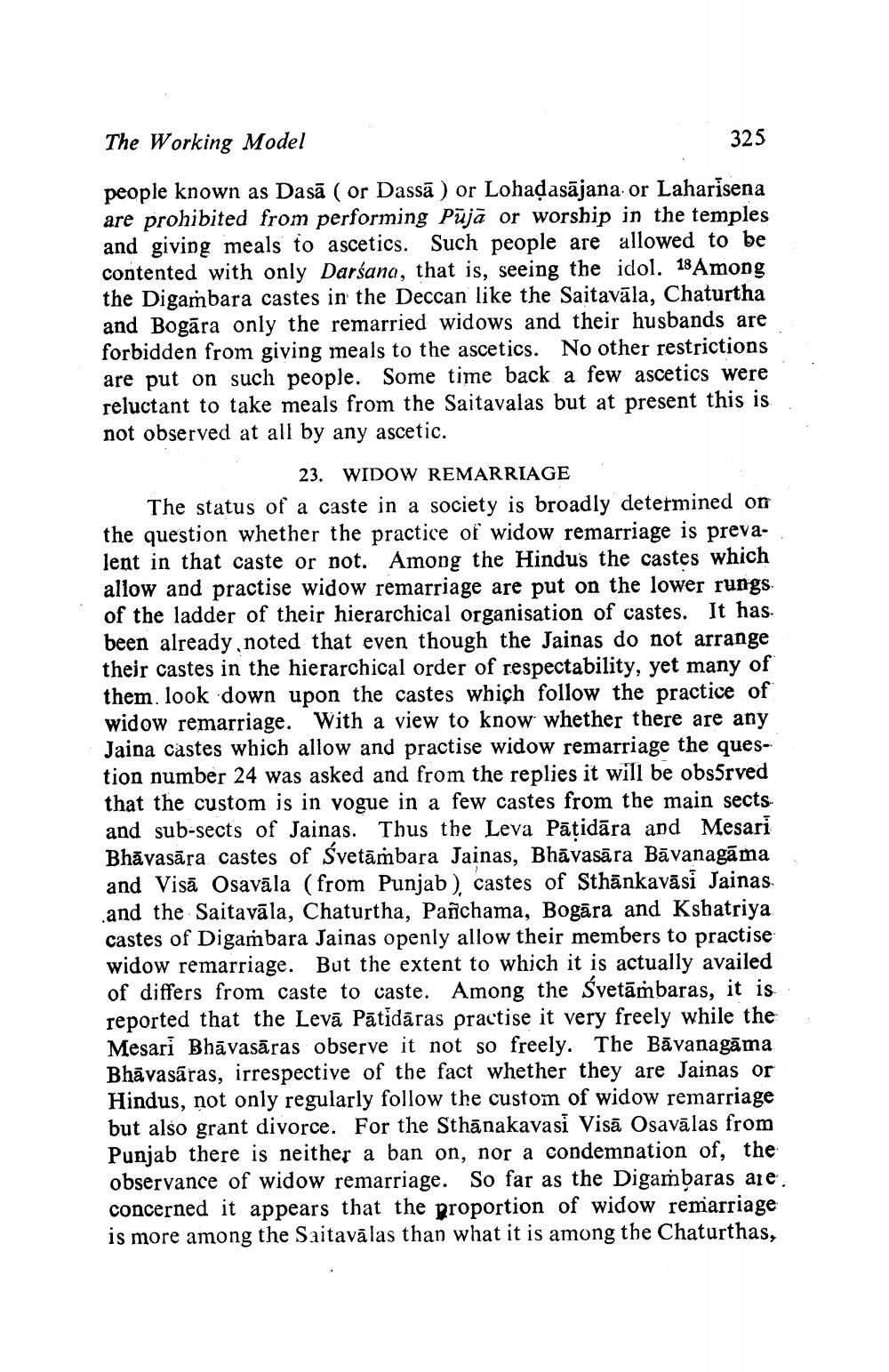________________
The Working Model
325
people known as Dasā (or Dassā) or Lohadasājana or Laharisena are prohibited from performing Pūjā or worship in the temples and giving meals to ascetics. Such people are allowed to be contented with only Darśana, that is, seeing the idol. 18 Among the Digambara castes in the Deccan like the Saitavāla, Chaturtha and Bogāra only the remarried widows and their husbands are forbidden from giving meals to the ascetics. No other restrictions are put on such people. Some time back a few ascetics were reluctant to take meals from the Saitavalas but at present this is not observed at all by any ascetic.
23. WIDOW REMARRIAGE The status of a caste in a society is broadly determined on the question whether the practice of widow remarriage is preva. lent in that caste or not. Among the Hindu's the castes which allow and practise widow remarriage are put on the lower rungs of the ladder of their hierarchical organisation of castes. It has been already noted that even though the Jainas do not arrange their castes in the hierarchical order of respectability, yet many of them. look down upon the castes which follow the practice of widow remarriage. With a view to know whether there are any Jaina castes which allow and practise widow remarriage the question number 24 was asked and from the replies it will be obs5rved that the custom is in vogue in a few castes from the main sects and sub-sects of Jainas. Thus the Leva Pātidāra and Mesari Bhāvasāra castes of Svetāmbara Jainas, Bhāvasāra Bāvanagāma and Visā Osavāla (from Punjab), castes of Sthānkavāsi Jainas and the Saitavāla, Chaturtha, Pañchama, Bogāra and Kshatriya castes of Digambara Jainas openly allow their members to practise widow remarriage. But the extent to which it is actually availed of differs from caste to caste. Among the Svetāṁbaras, it is reported that the Levā Pātidāras practise it very freely while the Mesari Bhāvasāras observe it not so freely. The Bāvanagāma Bhāvasaras, irrespective of the fact whether they are Jainas or Hindus, not only regularly follow the custom of widow remarriage but also grant divorce. For the Sthānakavasi Visā Osavālas from Punjab there is neither a ban on, nor a condemnation of, the observance of widow remarriage. So far as the Digambaras aje. concerned it appears that the proportion of widow remarriage is more among the Saitavālas than what it is among the Chaturthas,




